HISTORY | Dr Mahathir Mohamad, Malaysia’s fourth and seventh prime minister, was recently in the spotlight again – albeit for the wrong reasons.
In a recent interview with a Chennai-based Indian satellite television channel, Thanthi TV, Mahathir made several factually inaccurate, divisive, and racially- prejudiced remarks which are detrimental to nation-building.
They are most unbecoming of a statesperson who holds the unique record of having served as the nation’s prime minister for a record cumulative total of 24 years.
Among those provocative and racist remarks were: Malaysian Indians as well as Chinese are not completely loyal to the country; Malaysia belongs to the Malays; non-Malays are migrants and not owners of Malaysia; the Constitution says that Malaysia is a “Malay country”; and the non-Malays should assimilate and become “Malays”.
Additionally, but not surprisingly, Mahathir also denied his own Indian roots and went on to assert he had become 100 percent Malay.
These comments would normally have been subject to ridicule and even dismissed outright as the ranting of a bigoted politician. But given his distinguished record, they deserve to be vigorously rebutted.
Clearly, Mahathir is of the view that the Indians and Chinese cannot be patriotic to Malaysia because they identify themselves with their country of origin, have their own vernacular schools, speak their own language, and practise their own culture.
Sacrificing lives
The historical truth is that the Indians and Chinese are just as patriotic as the Malays. Numerous Indians and Chinese have served, and continue to serve, in the nation’s police and armed forces alongside their Malay brothers-in-arms.
Many of them have sacrificed their lives too when combating the communists during the 1948‒60 Emergency and the 1968‒89 Second Emergency.
A few examples will suffice. First, six Sikh police officers were killed in a communist ambush on July 12, 1949 at Bukit Munchong, a few miles north of Rawang, Selangor.
Second, Captain Hardev Singh, an intelligence officer with the Sixth Malaysian Brigade was killed in an ambush by communists at Kota Ayer near Gubir, Kedah on April 10, 1975.
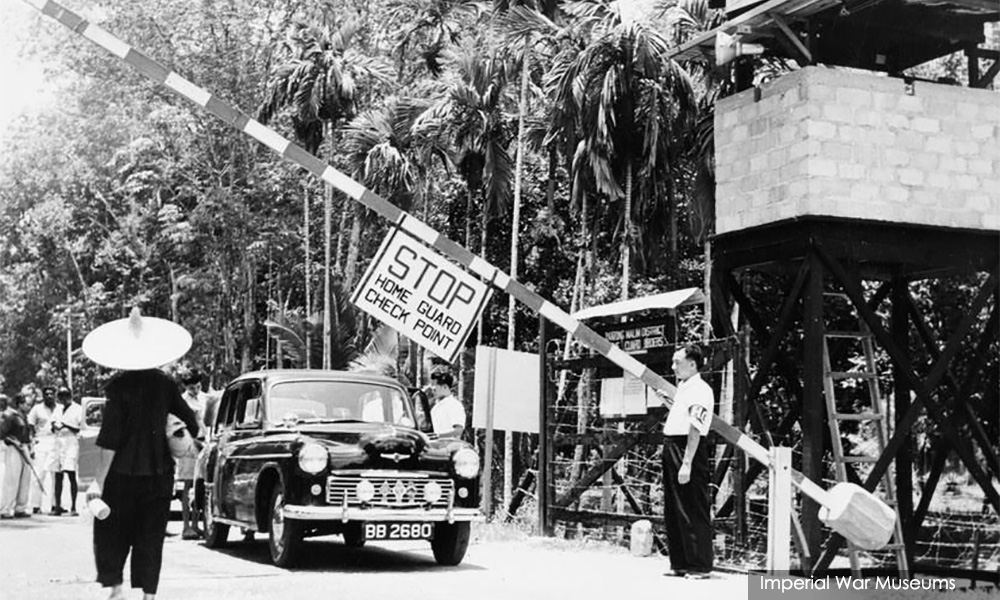
Third, several patriotic Chinese serving the nation’s police force, particularly the Special Branch, sacrificed their lives in the course of their duties.
Among them, as stated by K Temoc (Malaysiakini, March 14, 2013), were Deputy Commissioner Khoo Chong Kong, Chief Inspector Chin Chin Kooi, Sergeant Lee Han Cheong, Loh Ah Chu, Yeoh Chew Bik, Koh Ah Cheng, Chan Eng Teck, Yeap Sean Hua, and Ang Lock Say.
It is worthy of mention that numerous courageous Chinese Special Branch officers worked undercover and infiltrated the communist camps to gather valuable information.
Their significant role is best summarised by Leon Comber in his book ‘Malaya’s Secret Police 1945‒60: The Role of the Special Branch in the Malayan Emergency’:
“The role of the Special Branch was of the greatest importance in defeating the communist uprising and enabling the Malayan government to declare the Emergency at an end in 1960.”
Migrant pedigree
Make no mistake about it. Malaysia belongs to all Malaysians, and not just the Malays. Equally important, just as the Malays, the non-Malays are proud citizens of Malaysia, whose forebears have contributed significantly towards nation-building.
Incidentally, Mahathir had himself reportedly acknowledged that “the Malay community contributed the least” to the nation’s development, which has been “built on the hard work of the other races.” (Philip Bowring, The New York Times, April 12, 2006).
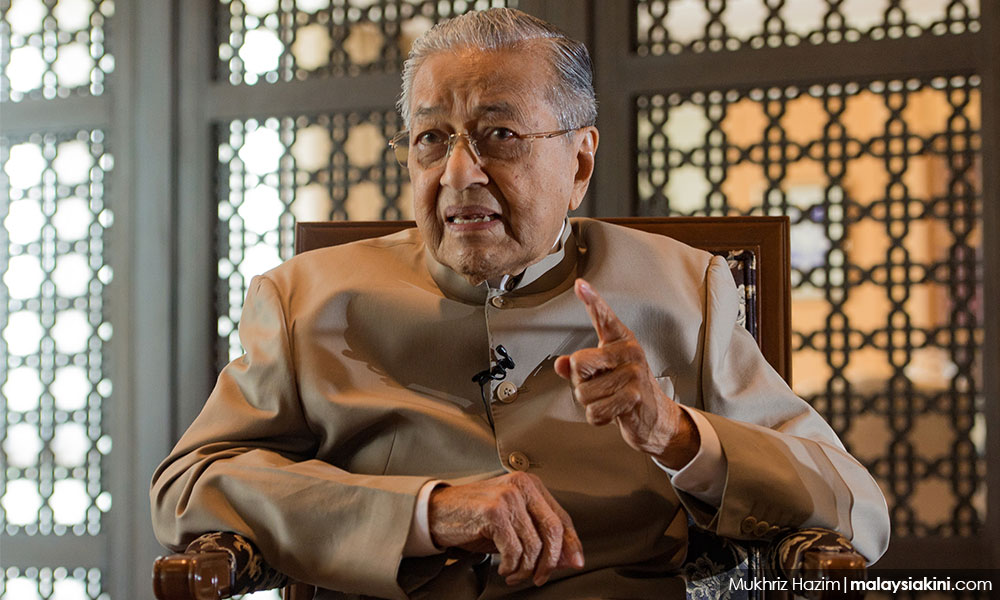
In case he has conveniently forgotten, Mahathir needs to be reminded that his Indian-Muslim grandfather from Kerala, India immigrated to Malaya only around the 1870s.
However, the history of the forebears of the Malaysian Chetti community and the Baba Chinese can be traced to a far earlier period dating to 15th-century Malacca.
For the record, the forebears of a substantial number of Malays were relatively recent migrants. According to the 1947 Census Report, about 26 percent of the Malays in Peninsular Malaysia were immigrants from Sumatra, Jawa, and other islands of what is currently Indonesia.
A ‘Malay country’
Let’s move on to Mahathir’s claim that the Federal Constitution says Malaysia is a “Malay country”. I share a different view.
Our nation’s founding fathers and the then Malay rulers’ vision was to build a genuine multiethnic, multireligious, and multicultural Malaysia.
Indeed, the Federal Constitution reflects the makeup of our nation’s multiethnic and multireligious society.
It absolutely safeguards the rights of all citizens – regardless of their ethnic background – to participate in the political processes, hold public office, and enjoy fundamental freedoms such as being entitled to equal protection of the law and freedom of religion.
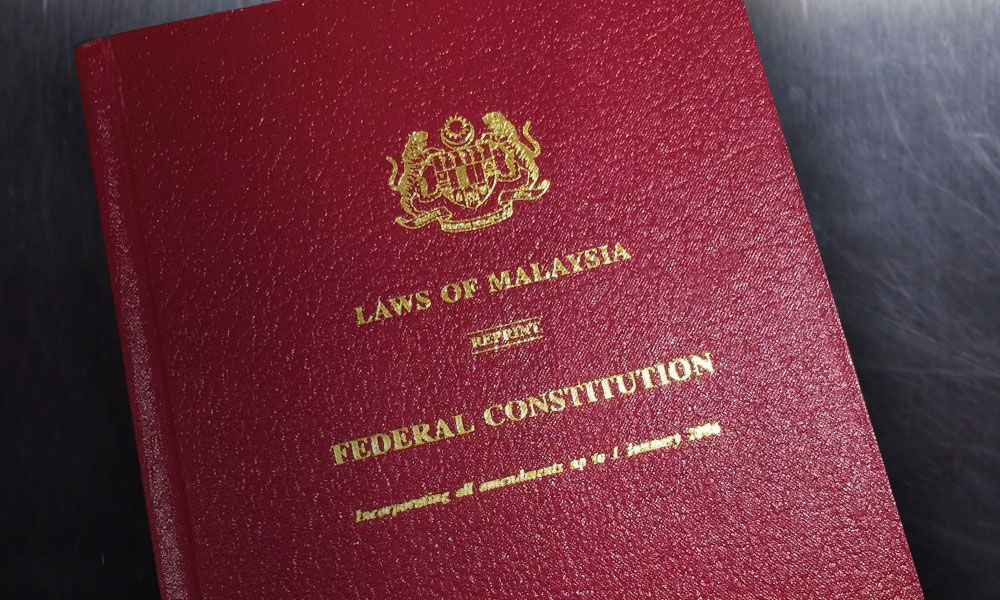
Equally disturbing and strange is Mahathir’s stand that the non-Malays should assimilate and become “Malay” which is ultra vires the Federal Constitution. Article 11 of the Federal Constitution stipulates that every person has the right to profess and practise his religion.
It does appear that Mahathir himself “mudah lupa” (forgetful), a term he had used while lamenting about the so-called shortcomings of the Malay community.
On occasions in the past, Mahathir has recognised the nation’s diverse ethnic and cultural makeup.
For example, in none other than his autobiography ‘A Doctor in the House: The Memoirs of Tun Dr Mahathir Mohamad’, he stated:
“We were all, without reservation or limitation, part of a Bangsa Malaysia – a single Malaysian people, unified yet diverse”; and
“If ours was to become a mature society, we had to accept that Malaysians of different creeds and colours had to be free to practise their religions, customs, and cultures.”
Finally, Mahathir had the cheek to deny his South Indian descent. He made the following remarks during the television interview: “I don’t know anything about my Indian roots” and “I am now 100% a Malay.”
Truth be told, as stated by Barry Wain in his book ‘Malaysian Maverick: Mahathir Mohamad in Turbulent Times’ (2012), Mahathir’s father was Mohamad Iskandar – a Jawi Peranakan (a locally-born Muslim with Indian blood).
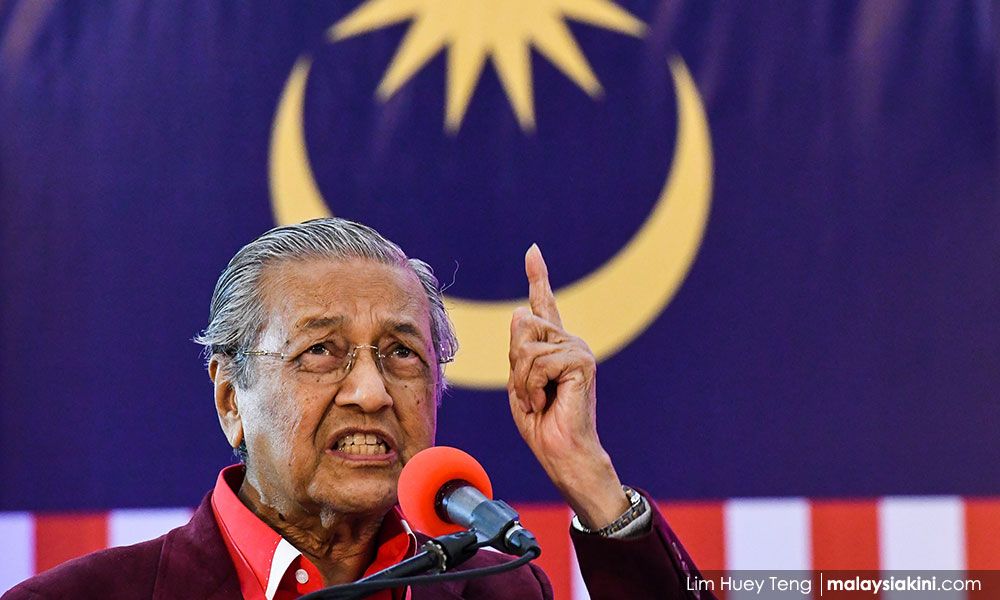
Similarly, RS Milne and Diane K Mauzy in their book ‘Malaysian Politics under Mahathir’ (1999) state that Mahathir’s father was half-Indian, half-Malay. Mahathir’s father was born in Penang and his mother was a Kedah-Malay, Wan Tempawan Wan Hanapi.
Again, by his own account, Mahathir has acknowledged his Indian roots in the past. In his autobiography ‘A Doctor in the House’, he writes:
“My father was a Penang Malay. Almost all Malays of the island of Penang have some Indian blood”; and
“I admit that some Indian, or more accurately South Asian blood flows in my veins, but from which part of the Indian subcontinent my ancestors came I do not know.”
Additionally, during a press conference with the Japanese and international media at the Japan National Press Club in Tokyo in June 2018, Mahathir acknowledged that he had a few spoonfuls of Indian blood left in his body, but otherwise, he is a Malay.
Pertaining to Mahathir’s name, a question often asked is why did Mahathir drop “Iskandar” from his patronymic.
In an editorial of Darulaman, the magazine of Sultan Abdul Hamid College, Alor Setar, which he wrote in December 1945, his name was written as “MAHATHIR BIN MD. ISKANDAR”. Similarly, in the 1952 MBBS examination results, his name was listed as “Mahathir b. Md. Iskandar”.
According to Sven Schottmann in his book ‘Mahathir’s Islam: Mahathir Mohamad on Religion and Modernity in Malaysia’, Mahathir probably did so because “Mohamad Iskandar” “simply sounded too south Indian to most Malays of the time.”
But this is one author’s view. I only mention it because of what Mahathir had said in the television interview.
Undeniably, Mahathir has contributed immensely as the “Father of Modern Malaysia” during his first tenure as prime minister (1981‒2003). He is widely credited for transforming Malaysia into one of the Asian economic tigers of the 1990s.
But all of his positive contributions have been erased in the minds of many Malaysians by his recent chauvinistic and bigoted remarks. It is rather unfortunate that history will most likely remember him as a divisive and polarising statesperson who has deeply hurt the sentiments of his fellow citizens. - Mkini
RANJIT SINGH MALHI is an independent historian who has written 19 books on Malaysian, Asian, and world history. He is highly committed to writing an inclusive and truthful history of Malaysia based on authoritative sources.
The views expressed here are those of the author/contributor and do not necessarily represent the views of MMKtT.



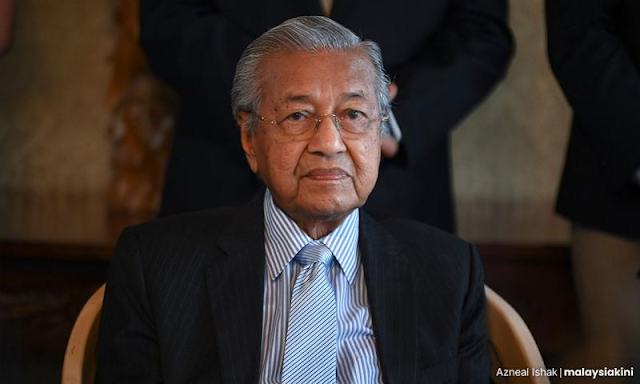
No comments:
Post a Comment
Note: Only a member of this blog may post a comment.